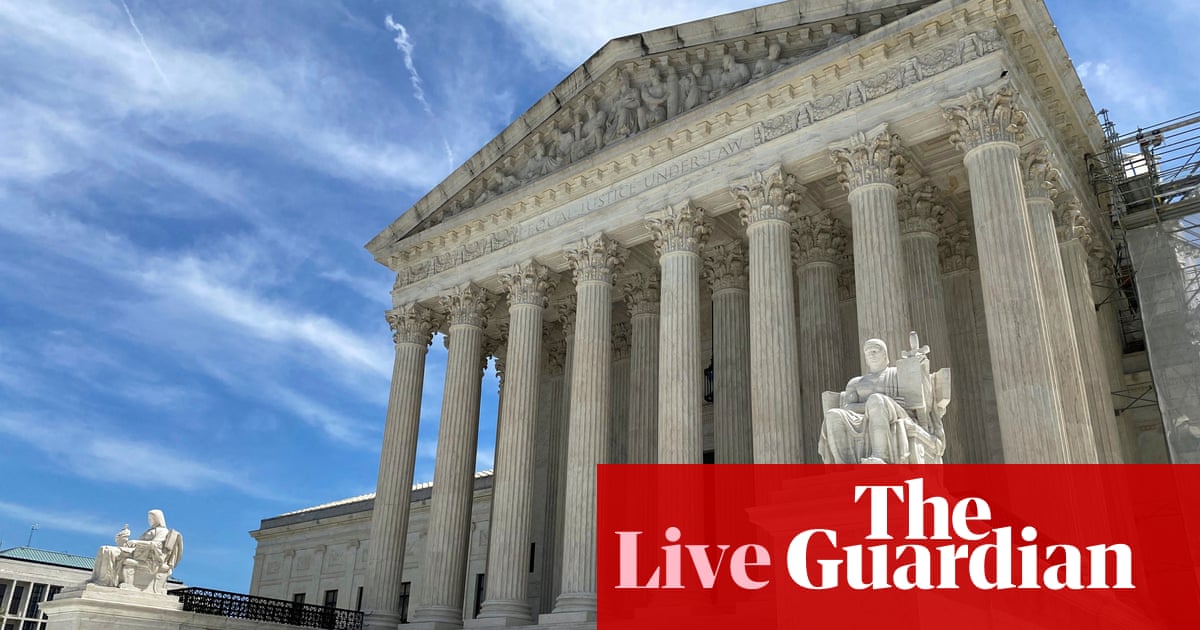Silicon Valley poured more than $394.1m into the US presidential election this year, according to a Guardian analysis, the bulk of it coming from an enormous donation of about $243m Elon Musk made to Donald Trump’s campaign.
The analysis of new election data from the US Federal Election Commission (FEC) shows the increasingly heavy influence of the tech industry in US elections. Advocates of cryptocurrency were particularly active in this election as they fought to stave off regulation, pumping money into the presidential campaigns and key congressional races.
The donors came from tech’s biggest companies: Google, WhatsApp, LinkedIn and Netflix. Others were powerful venture capitalists who had made billions from investing in tech.
Trump overall received $273.2m in donations from some of tech’s biggest names, including:
-
$242.6m from Elon Musk, owner of Tesla, SpaceX and X (formerly Twitter) who has an estimated net worth of $350bn.
-
$5.5m from Marc Andreessen, the billionaire founder of venture capital firm Andreessen Horowitz, also known as a16z. Andreessen’s co-founder, Ben Horowitz, initially supported Trump but flipped to Harris.
-
$5.1m from Jan Koum, the founder of WhatsApp who made the bulk of his fortune when Facebook acquired the messaging app in 2014 for $19bn.
Kamala Harris received a total of $120.9m, including:
-
$51.1m from the Facebook co-founder Dustin Moskovitz, who left the social media company in 2008 to start the workflow software company Asana.
-
$17m from Reid Hoffman, the co-founder of LinkedIn.
-
$11.7m from Chris Larsen, the billionaire chair of Ripple, a cryptocurrency company.
The FEC filings offer only a glimpse of the millions tech is pouring into Washington as it seeks to influence government and regulators. The accounting of US political giving is complicated and opaque and donors can find ways to give money without it being publicly reported.
There are a few ways a person can donate to a political campaign in the United States. The first is a direct contribution to a campaign, which is capped at $3,300 per candidate. The second is donating to a political action committee (Pac) that contributes directly to a political campaign, helping to pay for staffing, outreach, events and advertising.
The 2010 landmark supreme court case Citizens United v FEC made it much easier for industries and wealthy individuals to contribute to a political campaign, often in ways that are hard to track but that are entirely legal.
The court’s decision gave way to a third, more opaque way of donating: Super Pacs. Corporations and wealthy individuals can give an unlimited amount of cash to a Super Pac. The only caveat is that Super Pacs can’t contribute to a campaign directly – but they can spend all they want to on political advertising for their preferred candidate.
Individual and corporate spending on campaigns are thus virtually limitless. It’s how Elon Musk donated his $242.6m to Trump’s campaign, and how many others were able to spend millions supporting their candidate of choice.
For many of Trump’s wealthiest supporters, Trump’s rhetoric was overshadowed by his 2017 tax cuts, which are set to expire at the end of 2025. The cuts significantly decreased taxes for the wealthy and for corporations.
Trump has also blessed his closest supporters with unfettered access to the White House since his win in November. For Musk, $242.6m was probably a small price to pay for the direct line he now has to the president: Trump appointed Musk to co-head the new “Department of Government Efficiency”, or Doge, an advisory commission to evaluate government spending, with the fellow entrepreneur Vivek Ramaswamy.
It’s an about-face from just two years ago when Musk said that Trump should “hang up his hat and sail into the sunset”. For his part, Trump has bashed Tesla and SpaceX and said he could make Musk “drop to his knees and beg”.
Methodology
ShowThe Guardian analysis covers donations made by selected tech-related millionaires and billionaires’ contributions to either presidential campaign.
The individuals included in the list include:
- those included in the Forbes Real Time Billionaires List
- those who donated to tech-related political action committees (PACs) as per Follow the Crypto, a website that specialises in tracking political committees related to tech and cryptocurrency
- those reported to have supported either candidate
These names were checked against official Federal Election Commission’s (FEC) donations data.
Donations made to either Joe Biden or Kamala Harris have been included in the analysis.
The analysis also takes into account donations made by the same individuals to PACs whose primary focus is opposing or supporting the presidential candidates as identified by OpenSecrets, the Washington Post and other reporting. It includes 40 which supported the Trump campaign and a further 79 which supported the Harris/Biden campaigns.
The aggregated figures are likely an underestimate because:
- PACs which donate only a portion of their donations to one presidential candidate or the other were excluded because there was no way of verifying what proportion of a donors’ contribution went to either candidate
- donations to either campaign which fall outside the scope of the FEC, e.g. donations made by charitable causes are not included
- the complexity of the PAC donation system and the variability in how donors’ names are recorded. Manual checks were carried out on on those of $50,000 or more. Donations under this minimum may not appear in an individual’s aggregated total but are included in the topline figures
The calculations exclude refunds received by the donors. Only contributions made in the 2024 election cycle, including donations made in 2023, are included.
But Musk isn’t the only billionaire who endorsed Trump after publicly criticizing him for years. Andreessen was a vocal supporter of Hillary Clinton in 2016 and a critic of Trump’s anti-immigration stances. The Sequoia venture capitalist Doug Leone called the January 6 insurrection “horrific” and held Trump responsible for the attack in the aftermath, but ultimately went on to donate $3.5m to his campaign this year.
The tide of reversals is indicative of an ideological shift happening in Silicon Valley. Big tech long eschewed Washington but has become increasingly involved in politics as it has coalesced around crypto and AI, two relatively new technologies that have yet to see much government scrutiny or regulation.
Friendliness toward Trump has shown to be fruitful for industries looking to stave off regulation. Oil and gas executives donated millions of dollars to Trump’s campaign, with the former president promising to “drill, baby, drill”.
Crypto’s donations, and Trump’s changing views, have also arguably already borne fruit. On Wednesday, Trump nominated Paul Atkins, CEO of Patomak Global Partners, to be head of the Securities and Exchange Commission, the US’s top financial watchdog. Atkins is seen as crypto-friendly and would replace Gary Gensler, whose efforts to clamp down on the $3.5tn crypto market have set him at loggerheads with the digital currency community.
Though companies in the fossil fuel industry are typically the top corporate spenders in elections, the cryptocurrency lobby is quickly becoming the biggest spender in US elections. According to a report from the progressive thinktank Public Citizen, the crypto industry was the top corporate contributor in the 2024 election.
Much of crypto’s impact was seen in congressional elections – the crypto lobby spent $40m tanking the campaign of the incumbent Democratic Ohio senator Sherrod Brown – but crypto had its hands in the presidential races, too.
Though Trump was once a critic of crypto, calling it a “scam”, he has since embraced the industry as its advocates have entered his circle. Trump himself has launched a cryptocurrency.
In May, Trump became the first presidential candidate to accept donations in bitcoin. Shortly after, the twins Cameron and Tyler Winklevoss, the billionaire founders of the cryptocurrency exchange Gemini, donated a combined $2.5m, much of it in actual bitcoin, to Trump’s campaign. Tyler Winklevoss has called Gensler “evil” and both twins have lobbied hard for light-touch regulation of the industry.
The twins had some of their bitcoin refunded by Trump’s campaign committee after they exceeded the maximum cap for donating.
Over the summer, Trump praised the Winklevosses as “male models with a big, beautiful brain”.
Harris too indicated that she would be more supportive of the industry than her counterpart in the White House. It seemed to pay off: Chris Larsen, chair of Ripple, a cryptocurrency company that manages its own digital token, gave at least $11.7m to Harris’s campaign.
“She knows people who have grown up in the innovation economy,” Larsen said in October, of Harris. “I think she gets it at a fundamental level, in a way that I think the Biden folks were just not paying attention to.”
Crypto advocates were “willing to hedge their bets and play both sides”, said Lisa Gilbert, the co-president of Public Citizen. “In any individual race where they thought one candidate was the crypto candidate, they weighed in heavily and often got real results.”
But dark money is not just a thing of the conservative right. The Guardian’s analysis omitted a key donation from Bill Gates, the second-wealthiest person in the world, who reportedly donated $50m to Harris’s campaign. That’s because his donation does not appear in FEC data, since he donated the money through a non-profit, which doesn’t have to disclose donors.
“There are many avenues of giving. A big one of them is non-profits, that are secret and the limits are almost nonexistent,” Gilbert said. The US “has a complex system, and it exacerbates our problem of too much money in politics, by making huge swaths of it secret”.

.png) 1 month ago
12
1 month ago
12













































